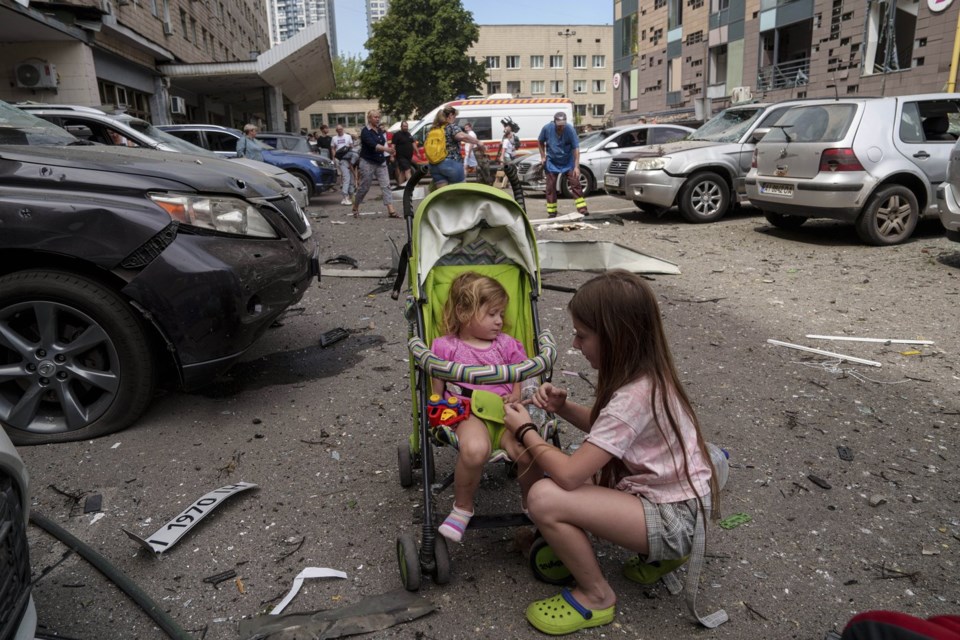MONTREAL ŌĆö More than 45 nations signed a pledge in Montreal on Thursday to repatriate to Ukraine the civilians, prisoners of war and children taken by Russia since it invaded the country nearly three years ago.
Foreign Affairs Minister M├®lanie Joly said the countries agreed to co-ordinate efforts to gather information about Ukrainians held in Russia and to create safe pathways for their return.
"Human lives must be protected. Children, civilians and prisoners of war must be allowed to return home," she said during a press conference at the close of a two-day summit on the human dimension of the war. "The Montreal pledge sets out the steps that we will collectively take to bring these people back home."
Ukrainian Foreign Affairs Minister Andrii Sybiha said nearly 42,000 Ukrainians are missing, and that almost 20,000 children have been deported to Russia. He said 860 Ukrainian children have been returned home to date.
Joly said Thursday's joint declaration will help co-ordinate existing efforts to locate missing Ukrainians. She said Qatar, South Africa and the Holy See have agreed to act as intermediaries to negotiate the return of prisoners of war, civilians and children. Lithuania and Qatar will act as transit countries for Ukrainians who are released.
Prime Minister Justin Trudeau addressed the delegates earlier in the day, urging them to work together. "Ukrainian children abducted by Russia must be returned to their families," he said. "Prisoners of war must be liberated."
Officials did not release a list of the more than 70 countries who sent delegations to Montreal this week, and it was unclear which countries had signed the pledge as of Thursday evening. But several major players were not present, including China, India and Brazil. Mexico and South Africa did attend the conference.
Joly said many countries felt "direct pressure from Russia" not to attend the summit. "Russia made many representations in many capitals of the world saying that they should not come to Montreal," she said. "It shows that what we're doing is shedding light on an issue that embarrasses Russia."
During the press conference, Joly deflected several questions about the potential impact of next week's United States election on the war in Ukraine, which will pass the 1,000-day mark next month. Former president Donald Trump has said if he wins he could end the war in a day, and has criticized the amount of U.S. aid given to Ukraine.
"No matter who is in the administration, we will have to bring the 20,000 Ukrainian children home," Joly told reporters.
She also said sa╣·╝╩┤½├Į is looking at co-ordinating with the U.S. on new sanctions against Russia, specifically related to deported children.
This week's summit follows a June conference in Switzerland, where 78 countries signed a joint communiqu├® calling for the ŌĆ£territorial integrityŌĆØ of Ukraine to be the basis of any peace agreement to end the war with Russia. The summit aimed to find a path toward peace, but with Russia absent, the meeting was largely seen as a symbolic effort by Kyiv to rally the international community to UkraineŌĆÖs cause.
About 100 delegations attended that conference, but some key developing nations did not sign the joint declaration, including India, Mexico, Saudi Arabia, South Africa and Brazil. China did not attend.
This report by The Canadian Press was first published Oct. 31, 2024.
Maura Forrest, The Canadian Press



